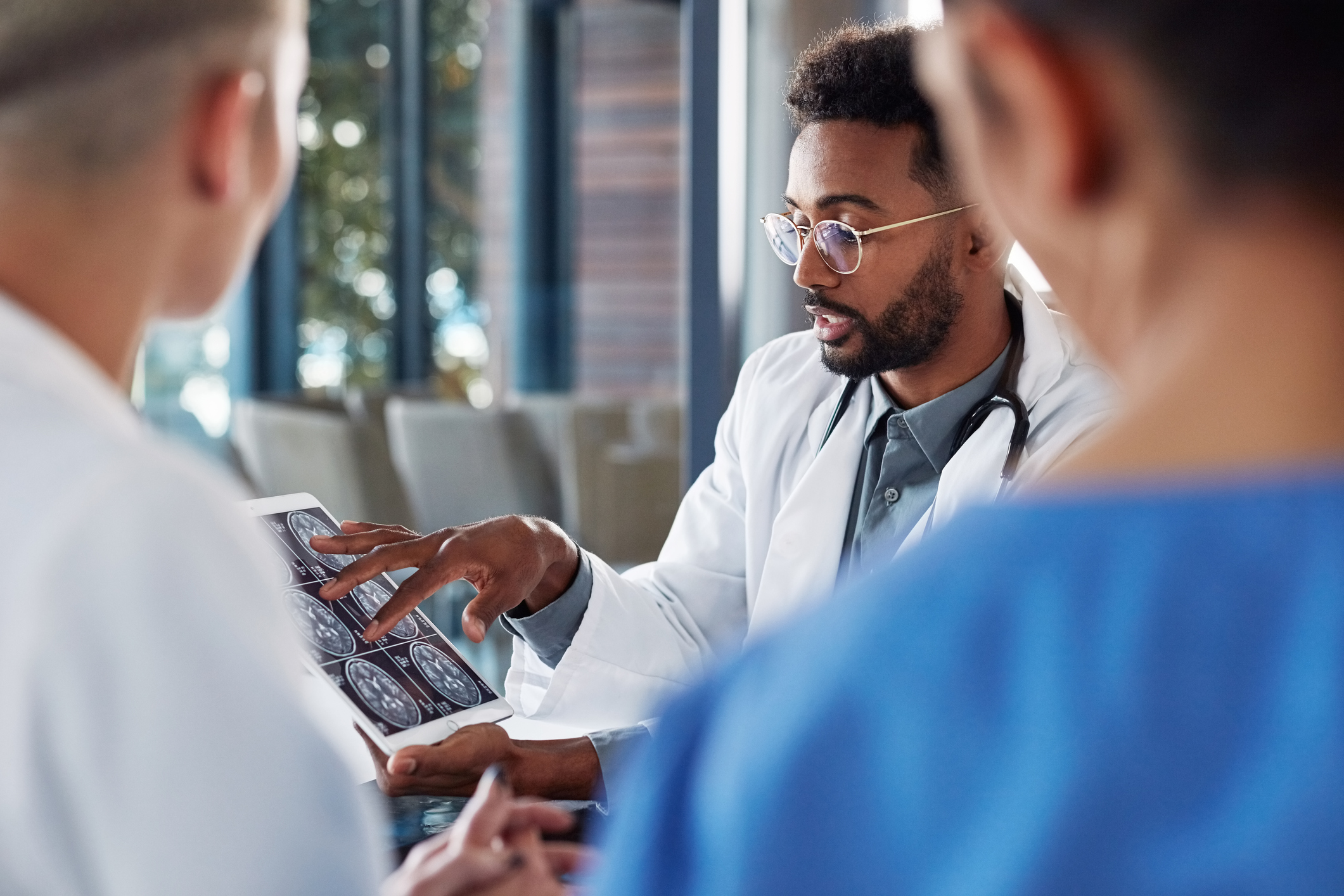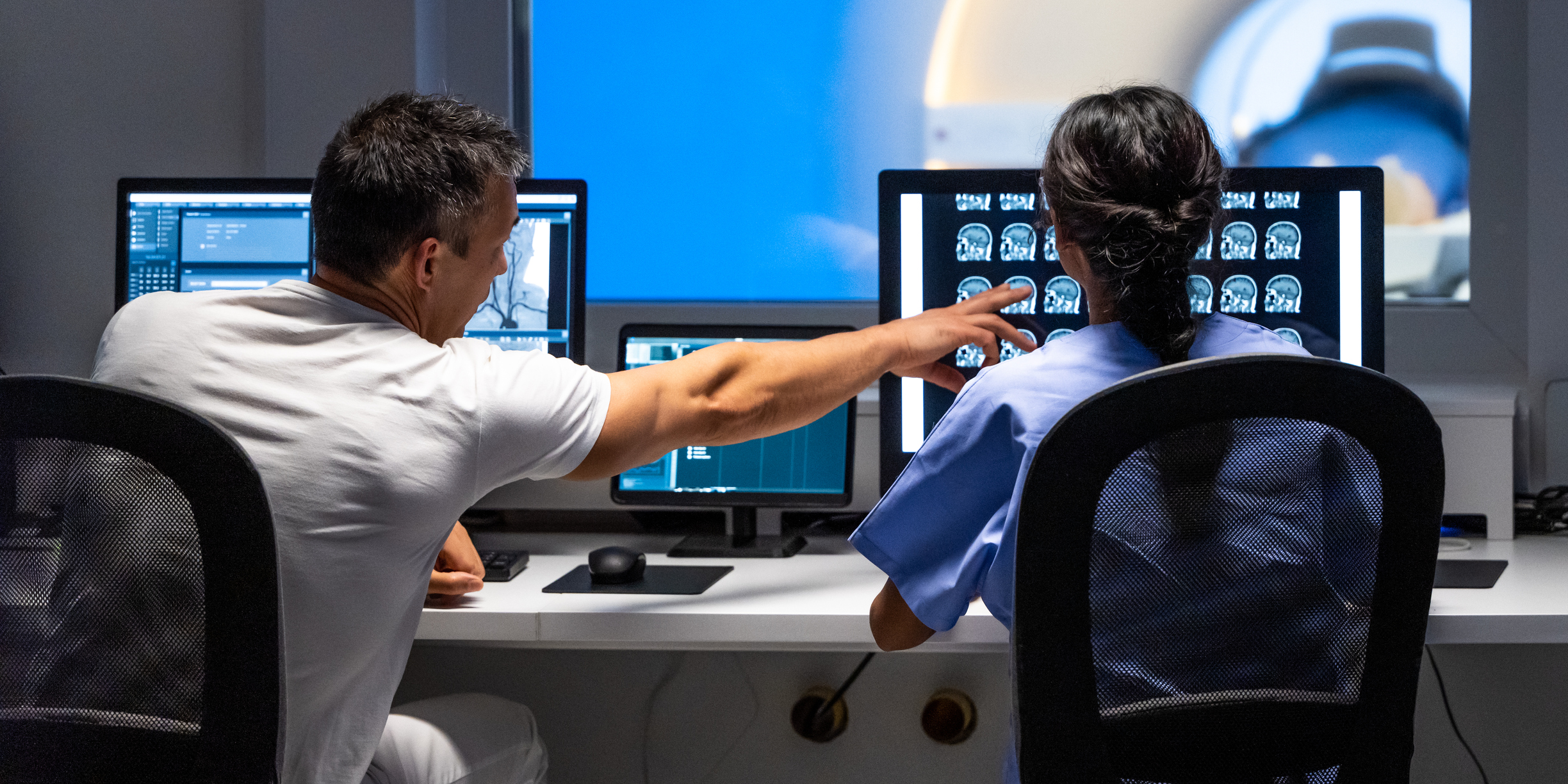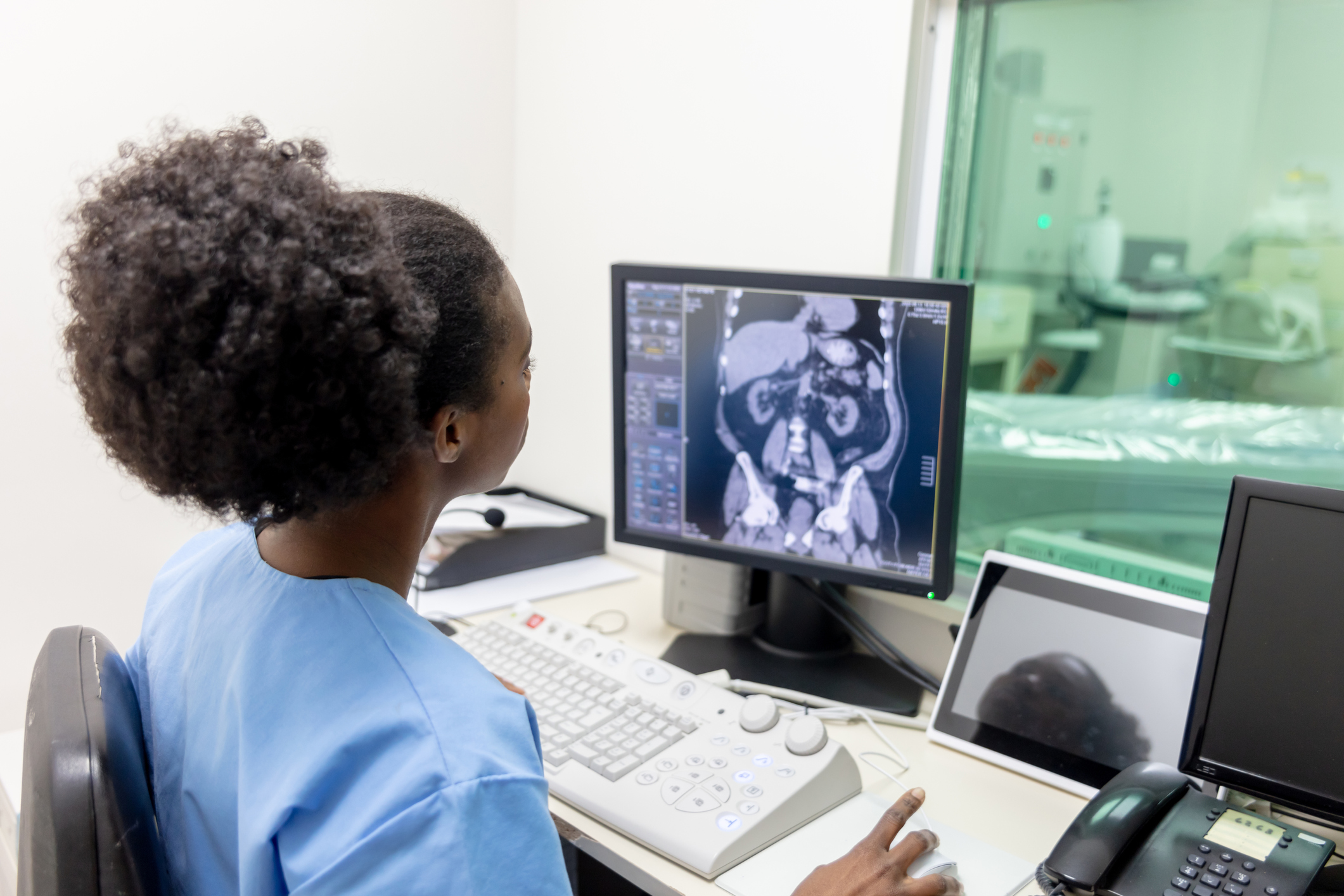
Radiology ST1 Interview Preparation Guide for 2026
Maximising your preparation for the Radiology ST1 interview is crucial if you want to be amongst the top-scoring candidates and secure your dream training post. The interview is the most significant aspect of the Radiology ST1 application process, holding 70% of your overall ranking, with the other 30% coming from the self-assessment stage.
This represents an increase from 2025, when the interview contributed 60% and the self-assessment 40%, reflecting the greater emphasis placed on interview performance for the 2026 recruitment cycle.
Radiology ST1 Interview Format
The Radiology ST1 interview consists of 7 questions across two 15-minute stations, each assessing essential qualities for a successful radiology trainee. Here’s what you can expect:
Station A
Station A includes:
- Two questions on your portfolio
- A question on your understanding of the specialty
- A skills-based question
This station assesses your motivation for radiology, your insight into the specialty, and how your experiences have prepared you for training.
What to expect:
You may be asked about your experiences reflected in your portfolio and how they demonstrate the skills and attributes required of a radiologist. The “understanding of the specialty” question may include discussion of the radiology training pathway, FRCR exams, or the day-to-day role of a radiologist within the NHS. The skills question may assess your ability to communicate effectively, reflect, or prioritise tasks in a clinical setting.
Preparation tips:
- Be familiar with your portfolio evidence, particularly achievements that demonstrate commitment, teaching, teamwork, or audit/QI work.
- Review the Radiology curriculum and have a clear understanding of how the training pathway and FRCR exams fit into progression.
- Reflect on what you learned from taster weeks or radiology placements, and how these experiences confirmed your interest in the specialty.
- Stay up to date with current developments in radiology, including the use of AI, workforce challenges, and evolving models of service delivery.
- When discussing skills, link your answers to real-life examples that demonstrate your contributions, reflections, and growth.
Station B
Station B includes:
- A question on clinical scenario prioritisation
- A question on coping with pressure and managing uncertainty
- A question on team involvement
This station focuses on assessing your ability to think critically under pressure, prioritise effectively, and work well as part of a multidisciplinary team, all essential skills for a successful radiologist.
What to expect:
You may be presented with short clinical scenarios that test your ability to prioritise cases based on urgency and available information. The assessors will be looking for structured and logical reasoning, as well as awareness of patient safety.
The second and third questions focus on how you manage stress, uncertainty, and teamwork in demanding situations. You might be asked to reflect on a time when you worked in a busy clinical environment, supported a colleague, or adapted to unexpected challenges.
Preparation tips:
- Practise approaching prioritisation scenarios methodically, and state your reasoning clearly, always linking decisions back to patient safety and communication.
- Reflect on experiences that demonstrate resilience, adaptability, and teamworking, whether in clinical settings or during medical school placements.
- Be ready to discuss how you maintain performance and professionalism under pressure, including how you seek support when needed.
- When discussing teamwork, focus on your role within the team, how you communicated effectively, and what you learned from the experience.
The Medibuddy Radiology ST1 Interview Question Bank includes targeted scenarios and model answers to help you practise prioritisation and communication-based questions like these.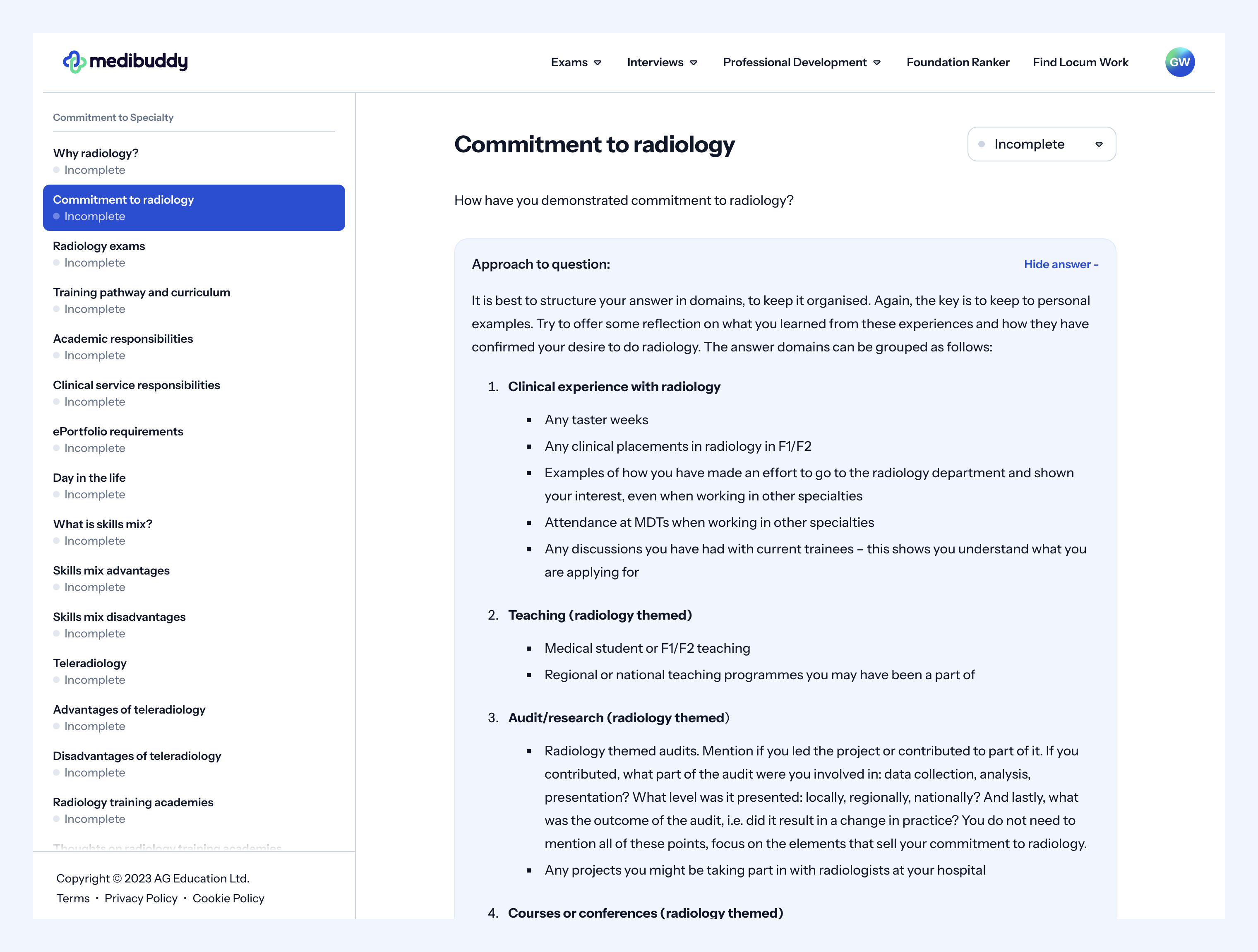
The Radiology ST1 interview has been known to change at the last minute in previous years. In 2024, the interview included a Clinical Prioritisation station, which was announced just before the interview and then dropped for the 2025 interview. For 2026, a question on clinical scenario prioritisation has been included in Station B. You can practice these question types in our Question Bank.
Staying updated on the latest radiology news and developments is crucial in the lead-up to your interview. By following this guide and keeping informed of any changes, you’ll position yourself for success in the Radiology ST1 interview. Remember, thorough preparation and a genuine passion for the specialty are essential to achieving a high score in the interview.
Good luck!
Useful Resources
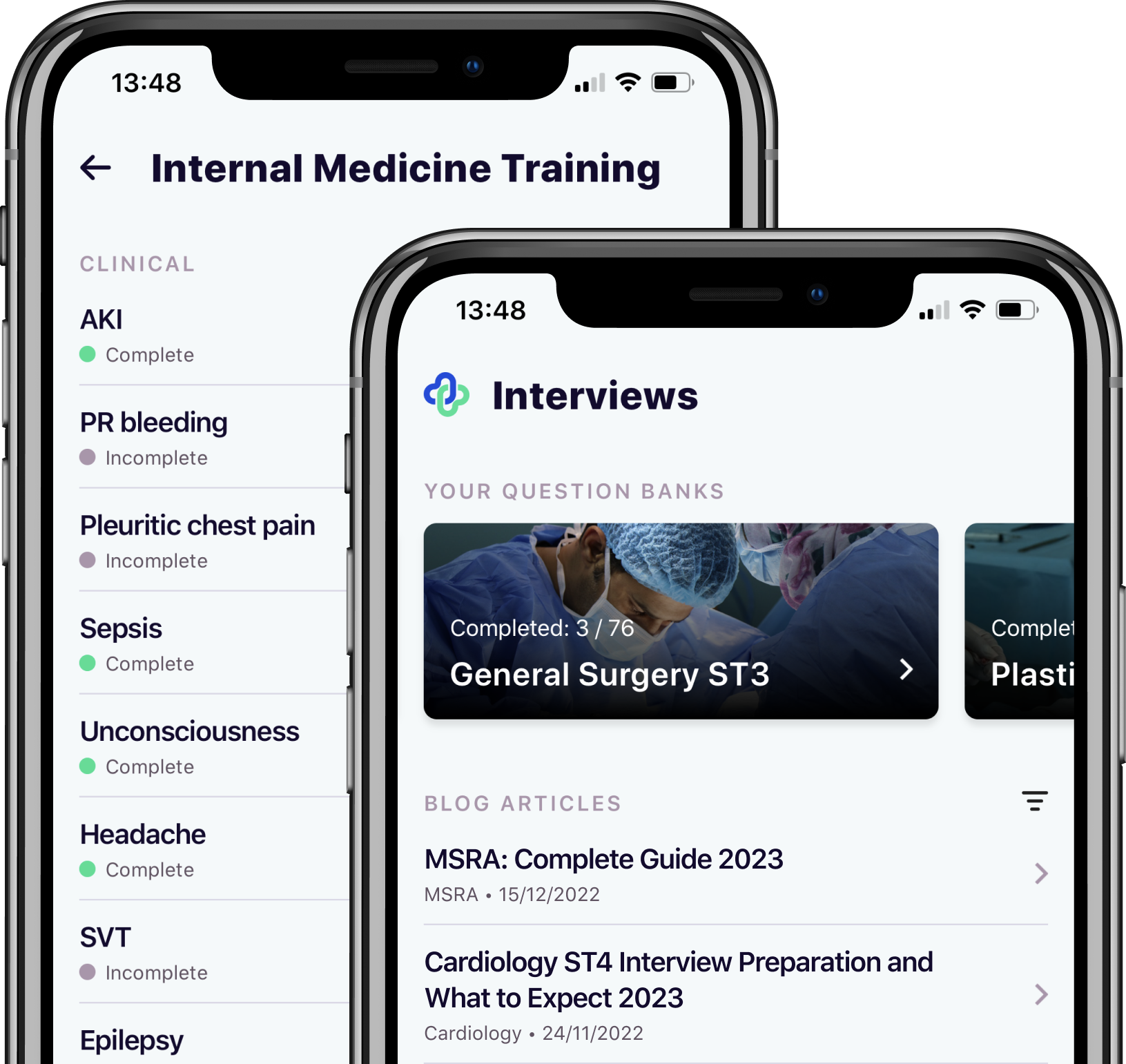
Take your subscriptions with you
Our mobile app allows you to access your interview and exam question banks wherever you are.


